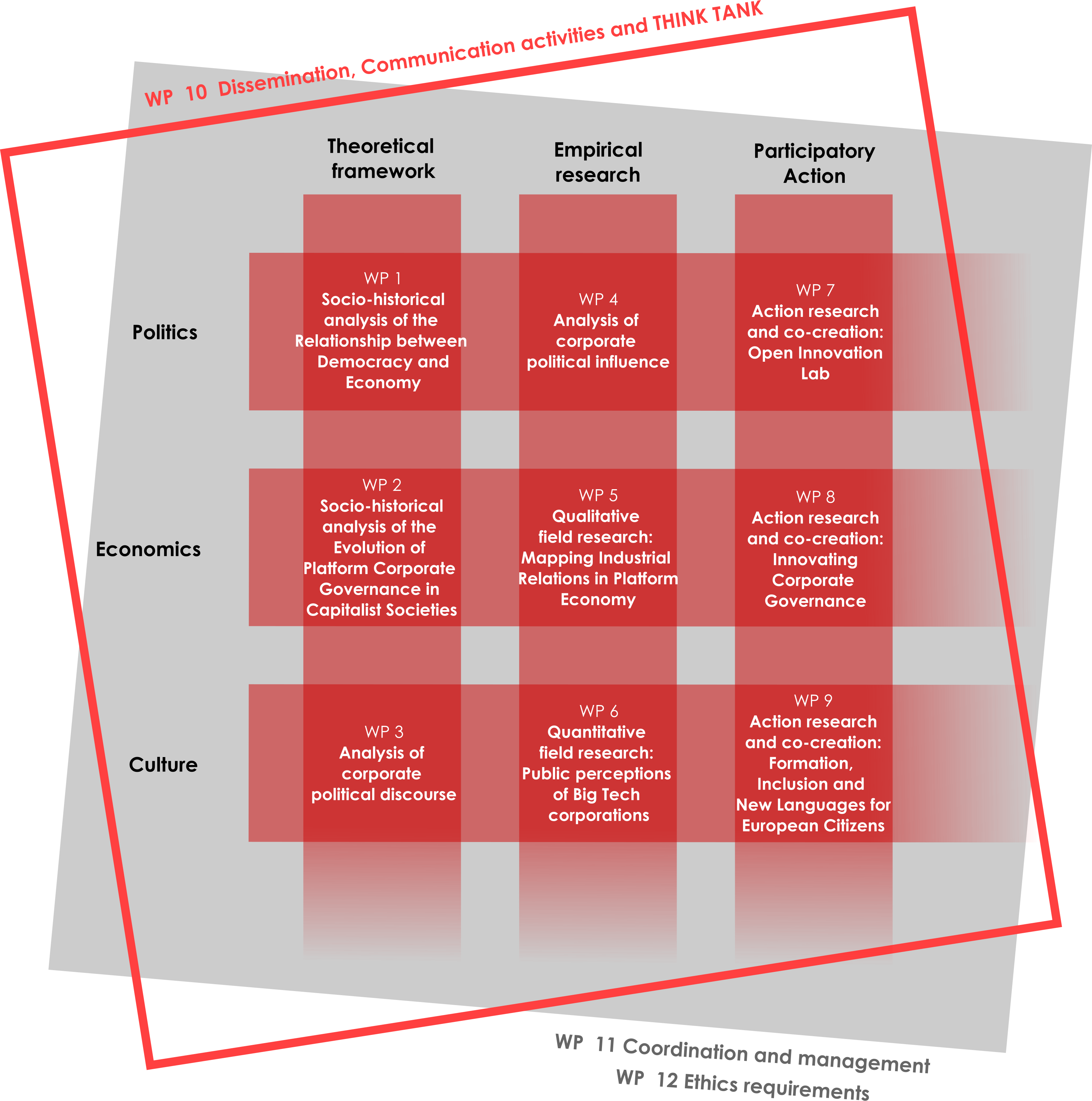Through a transdisciplinary and multilevel methodological approach, the INCA project will fulfil the envisioned work plan, organised in work packages (WP). The workflow explained in the Approach section matches the work packages’ arrangement, as each action to be carried out in the intersection between the workflows (theoretical research, empirical research and participatory actions) and the three spheres that will be covered (politics, economics and culture) represents a work package.
Thus, nine work packages will define the core research work of the project, and apart from those, additional work packages will be devoted to dissemination and communication activities and the Think Tank; coordination and management and ethics requirements
